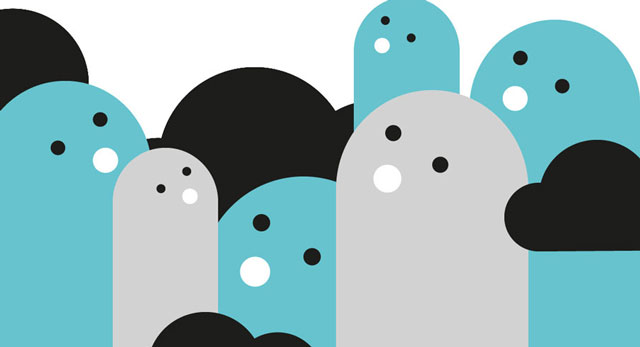
From streaming services to direct download sites, SA has seen a range of new music offerings arrive in recent months. Now there are two more on the horizon, each with completely different models, but each wanting to give SA artists the dues, and revenue, they deserve.
The first, Biblo, was founded by musician Markus Wormstorm (Markus Sutcliffe-Smit to the taxman) and his wife Alison. It’s set to launch on Saturday and will serve as a boutique outlet for advertisers, filmmakers, broadcasters and brands looking to license curated, high-quality SA music.
“We want to create a shelter for local artists so they don’t get messed around and so they get proper fees,” Sutcliffe-Smit explains. “All the tracks are handpicked so the quality is a bit higher. We offer licensing across the board, from public performance, to Internet licences, and licences for television broadcast and film.”
An Internet licence, for example, allows a company or other party to use a track for a year for R5 000. This is not restricted to territories and is the equivalent of renting the music for the period. Sutcliffe-Smit says a recent client was an international beer brand that needed tracks for background music at a presentation.
To date, 20 artists have signed up, a figure Sutcliffe-Smit says he wants to double by the end of the year.
Biblo has automated the contract process so that when a client is interested in an artist’s material, the contracts between the two can be generated and mailed automatically based on the information the various parties insert into online forms.
“Under the [Electronic Communications and Transactions Act], online contracts are like signed contracts, but lots of people still want physical ones because they’re stuck in the 1980s fax-machine model. This suits both.”
Because Biblo never actually owns the music, it doesn’t have to deal with the National Organisation for Reproductive Rights in Music in SA (Norm). In instances where artists don’t own their own music, Biblo will deal with the publisher to license or take over the catalogue.
Moreover, artists get to set their own prices, and prices may vary across a catalogue depending on the standing of the artist in question.
Biblo makes its money by taking 40% of the final amount. Because its rates are higher and it’s offering a “boutique” service, Sutcliffe-Smit says artists will still make more than they would through Norm, which offers lower rates.
Songrab
The second new music site making waves is Songrab, which wants to get brands that often spend large sums sponsoring music events to put up money that will then be split between artists proportionally depending on how popular their music proves to be in a given month.
“Brands and sponsors have filled the gap of record labels,” says Matt Visser, one of Songrab’s four founders. He says that although subscription models are great for consumers, it’s very hard for artists to make sustainable livings off them.
Songrab is a platform where artists can be rewarded by brands for the attention they’ve garnered from consumers. Visser calls this the “attention economy model”.
“I’m a digital strategist by trade so I hear terms like ‘eyeballs’ and ‘engagement’ thrown around all day. We want to give musicians a chance to leverage their existing reach.”
He says that rather than printing t-shirts saying “we support local music”, brands can circumvent the agencies, promoters and other middlemen and ensure that money goes to bands directly.
As a result, Songrab is a labour of love and has no monetisation plans. Visser says if they are cutting out middlemen, they can’t very well take a cut in the process.
The service has yet to launch officially, and Visser says the team is on a drive to secure as many sponsors as possible.
“The ultimate goal is a sustainable platform with a rotating playlist,” he says.
Artists who submit material will be added to a playlist once a month and the particular month’s sponsor money will be split proportionally between bands according to how many downloads their track has enjoyed. The idea, says Visser, is that users get the music for free, but the bands still gets paid.
Of the 10 bands playlisted each month, the bottom three will be removed and three “wild card” bands will get a chance the following month. “If you can make it out of the bottom three, you get to stay in another month. It’s kind of a premier league of downloadable songs.”
Though Songrab has musicians clamouring to get involved, sponsors are proving harder to convince. “Brands are difficult because they all have gatekeepers,” Visser says. “Agencies want to know what mark-up they can put on the deal.”
Songrab won’t handle any of the money itself, but simply facilitates the contract between sponsors and musicians.
In order to woo both other artists and sponsors, Songrab is talking to various artists about using the platform to release new music.
Visser and his co-founders — Ryno van Niekerk, Martijn van Maasakkers and Brendan Sterley — all have day jobs and consider Songrab a passion project. Van Niekerk originally came up with the idea after lengthy discussions with Visser about the state of the local music industry and the problems with the payment models of streaming services and other forms of digital distribution.
Users are encouraged to Tweet or post to Facebook when they download tracks, but can also opt to enter their e-mail address instead because “not everyone wants to publicise their activity”. Users would then be added to the mailing list of the band in question, but could unsubscribe should they wish to.
In order to further sweeten the deal, Songrab is offering sponsors the necessary artwork and development for free. — (c) 2012 NewsCentral Media

